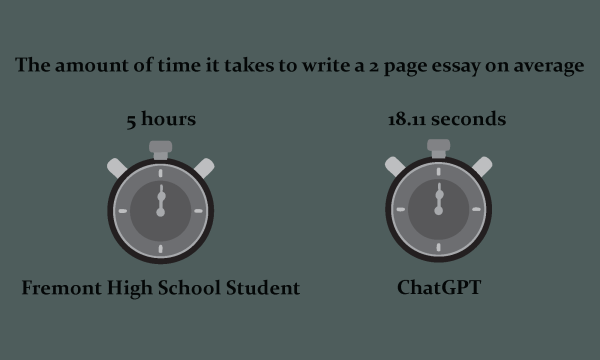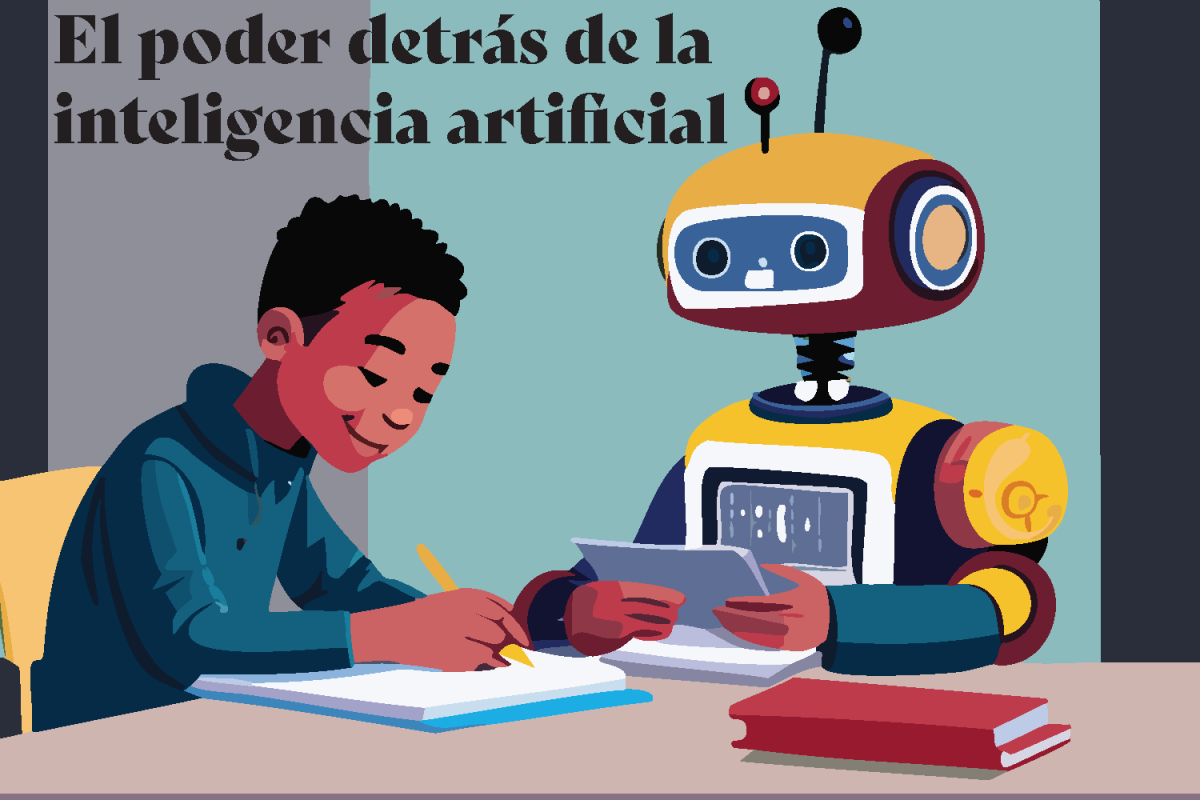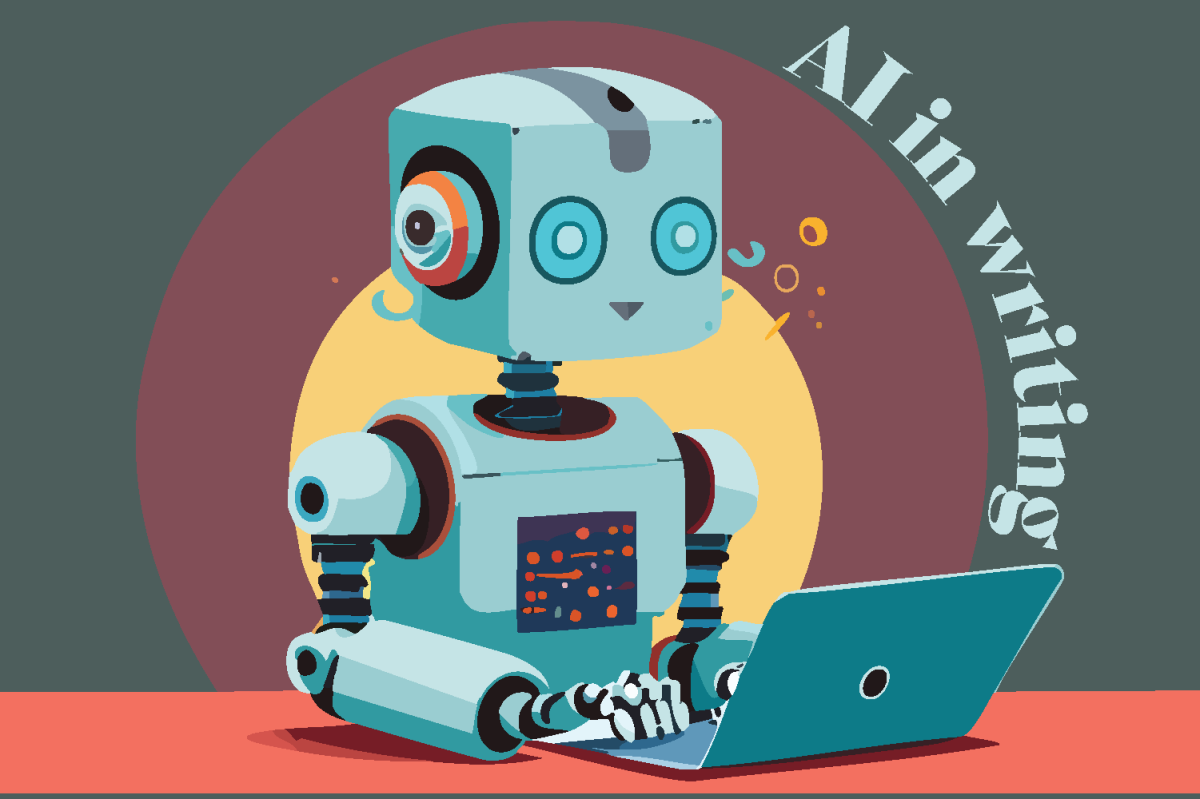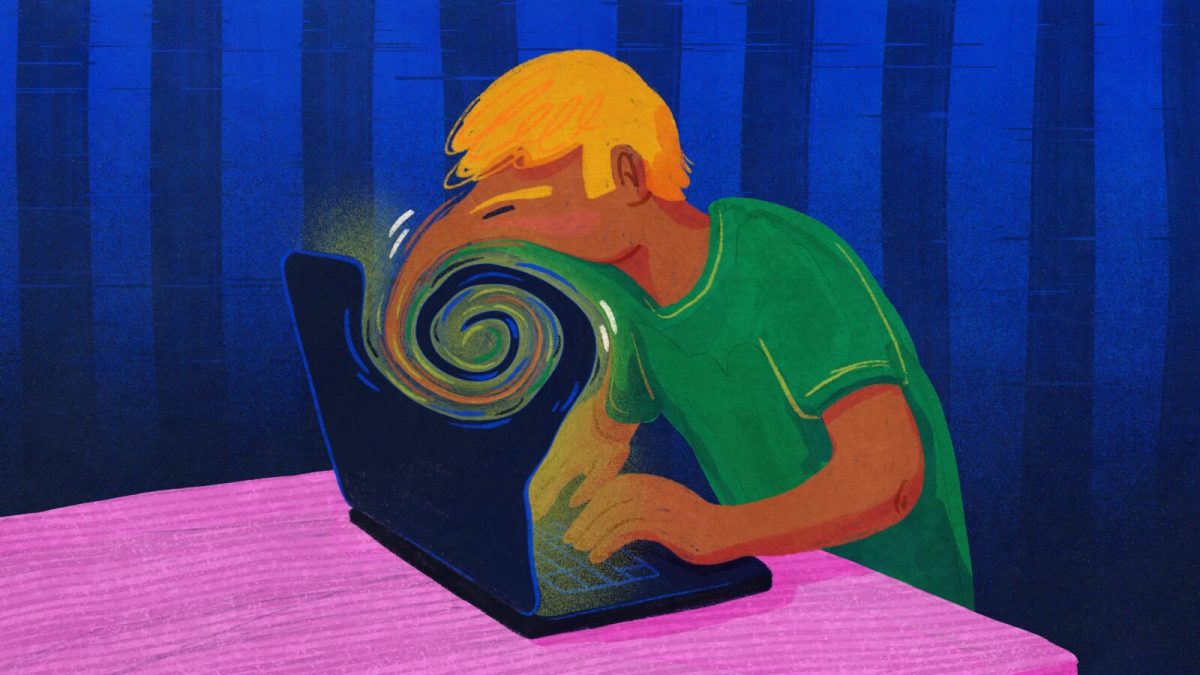Writing is something that everyone has done either for school, a job, or even for fun. When it comes to job industries like journalism, publishing, and Hollywood, writing is how most people make their income. With the advancement of technology, especially the creation of AI, many writers gained access to new technological creations whether they work with grammar or people’s jobs within brainstorming ideas, but in recent years there has been a growing conversation about AI replacing people in the workforce. In some industries this has already begun, so now many writers fear that their jobs may be next.
With the current Writers’ and Actors’ Strike making headlines since May and July of 2023, a major point of contention is the use of AI in film. According to NPR.org, many writers in the entertainment industry are concerned about the future look of writing in Hollywood. With worries that AI may reduce writers’ impact to be redundant, the Writer’s Guild of America (WGA) is fighting for the prevention of studios taking advantage of AI to write or rewrite material such as treatments, stories, screenplays and even source material. The WGA is also fighting for writers’ work being used to train AI, which would inevitably take jobs from real people, which for many companies would be the ideal.
Although Hollywood is known for its riches and glamor, at the end of the day it is a business and using AI to write and rewrite stories is a total bargain compared to the cost of having to pay people their dues. According to Bob Iger, the current CEO of Disney, AI is beneficial. “We’re already starting to use AI to create some efficiencies and ultimately to better serve consumers,” Iger said. “But it’s also clear that AI is going to be highly disruptive, and it could be extremely difficult to manage, particularly from an IP management perspective.”
According to AI experts and writers AI is not at a good enough level capable of creating scripts and stories that have depth and emotion to them and a majority of them are not good. Gary Marcus, a cognitive scientist and host of the podcast “Humans vs. Machines with Gary Marcus”, explains the mechanics of writing AI. “In a certain sense, what they’re [AI] doing is regurgitating what they’ve seen before… it’s a sophisticated sense of regurgitation, because they can put in synonyms and paraphrases. But they stick pretty close to what they’ve seen. It’s pretty easy for them to come up with something that’s, let’s say, prototypical or stereotypical,” Marcus said. “They’re also pretty good at basic wordplay and poetry style. But what makes a movie work is an interesting idea and interesting execution — I don’t know if we’ll get that anytime soon.”
Hollywood is not alone in the growing fear of AI, the journalism industry has its own fear – maybe even greater- of what A
An issue with this strategy is that if artificial intelligence can’t create content that people want to read than the plan fails. If the plan does work, it can also fail because then other publishers will start using it creating competition. Speaking of competition, issues arise when smaller publishers that use AI become competition for the companies that created it in the first place.
According to John Herman, a journalist for New York Magazine, “Google is testing out a feature that provides AI-generated answers at the top of its search results. I’ve been using it for a few months, and its prospects are interesting and complicated. The tasks for which it seems most competent — providing some quick background on a broad subject, news event, or concept; suggesting products or content; reciting “objectivish” facts about a person or thing — are the ones that make it seem the most like a plagiarism machine,” Herman said. “It’s better than I expected it to be in a narrow sense. But it’s also been surprising in a psychological and behavioral sense in that Google’s credible, relevant-seeming AI content has become, at least to this user, something like an ad: a second-tier block of content over which my eyes are learning to skim…”
It is unlikely that any current news organizations will begin to rely solely on AI, or even explore the possibility of it. But if they do journalism would become a soulless, automated and unvarying. The second possibility is that AI could actually improve journalism. AI can help journalists become better editors, reporters and producers. It can also help solve any writing problems a journalist may have. So although AI can be scary it offers a lot of good too!
The third possibility is that AI will overshadow journalism. According to the Intelligence, “The automation-curious newsroom will provide fertile ground for labor disputes, as jobs are subtly — or maybe rapidly — altered with the deployment of new machinery and by changing expectations from management…” Overtime journalists’ jobs will be dominated by AI.

I poses for their future. There are many theories about what AI could do and one of them is the possibility of AI replacing journalism entirely. According to New York Magazine, “At one extreme, you have online-first news organizations that are ready to start generating more content now in the most straightforward way possible: asking tools based on new large language models to compose stories about x or y for direct or lightly edited publication.” Some news sites like CNET (short for “Computer Network”), have already started putting this motion into practice, but unfortunately for them it did not work. They had to stop once they realized that the content was full of many errors such as unintentional plagiarism.
AI can also be damaging, and has some risks, such as misinformation. AI is susceptible to bias and information since at the end of the day it relies on someone to program it. Quality and plagiarism is also a risk. Since AI doesn’t actually understand what they are writing they can misplace sentences and statistics. The algorithms can also devalue content and publishers who take advantage of AI risk having their site flagged by search engines. AI cannot produce creativity and originality like the human mind can. AI has to be programmed to write something. Brands’ reputation is also at stake. It can happen if brands publishes posts with many errors, thanks to AI. In turn, many people can find it distasteful and no longer want to support the brands.
Like it or not AI is here to stay. AI is just like most technological advances and society needs to be better prepared for it. Although AI has many pros the effect of its cons remains to be seen.
























